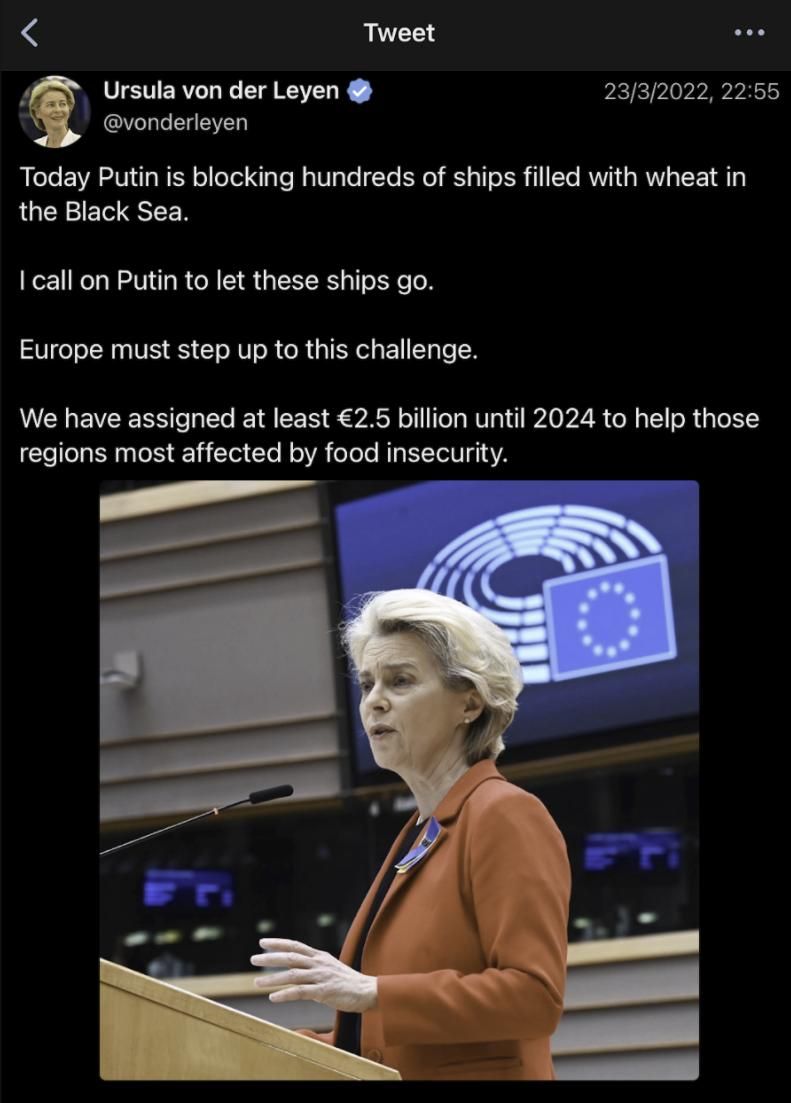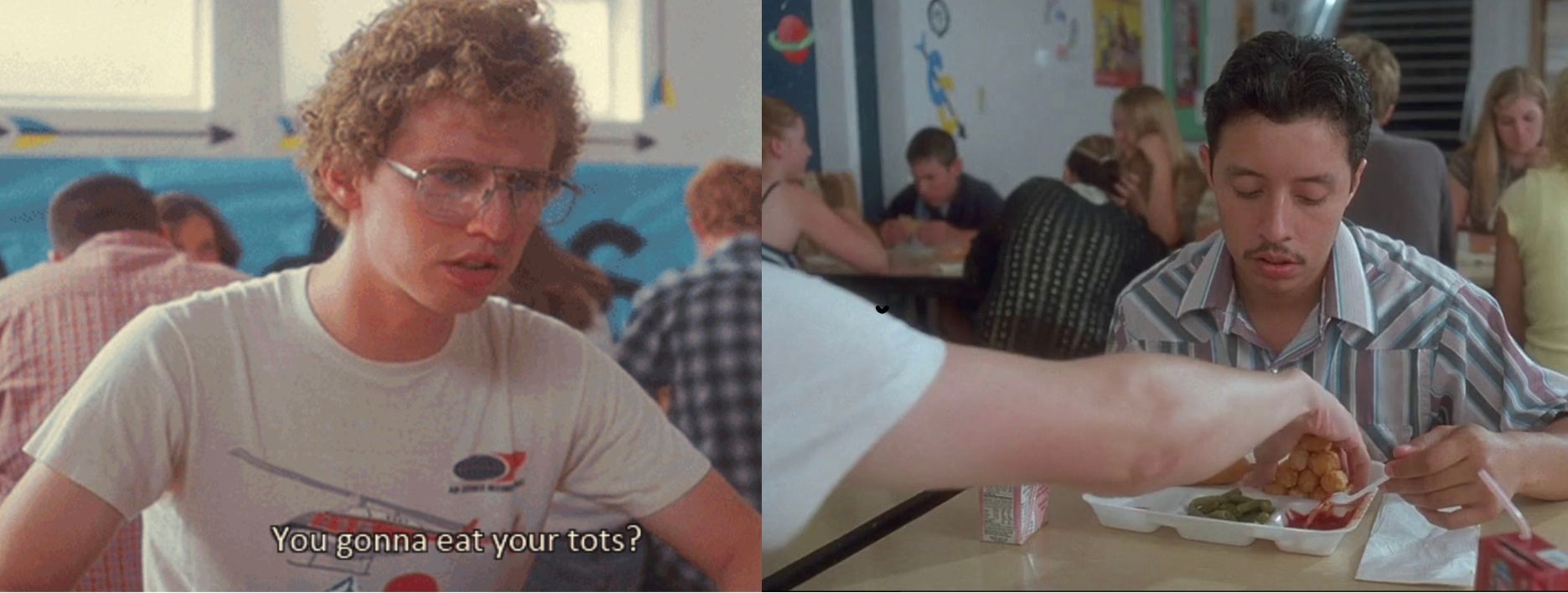Podcast Ep.5 Heads In The Clouds
Our smart phones would be pretty dumb without cloud connectivity. Just how clean and green is this 'cloud' that powers our digital lives?
Russia’s invasion of Ukraine and associated sanctions are disrupting global food trade. Who bears the consequences and how serious will they be?

A couple of months ago I highlighted the complexity of our worldwide food mining (aka industrial agriculture) system. TLDR: feeding 8 million people requires the extraction, refining, processing and worldwide distribution of three essential bulk food growing inputs: nitrogen, phosphorus and potassium. Every step, from extraction to distribution, is powered by fossil fuels.
Much of the world can’t grow enough food even with these inputs; but relies on imported food - particularly grains, oil-seeds and pulses. Every step of exporting food surpluses from the world’s broad-acre farmlands and distributing them to food importers depends on the same trade networks, transport infrastructure and fossil fuels as the global food mining system.
Russia’s invasion of Ukraine affects both Russia and Ukraine’s exports of food, fertilisers and fossil fuels (three critical famine-preventing 'Fs'). Direct economic sanctions, prohibiting much of the usual trade with Russia, has been compounded by indirect ‘sanctions’ by literally thousands of global brands. The latter to protect brand reputation. Even Phillip Morris - that great purveyor of death through smoked tobacco products - has decided staying in Russia is harming their reputation...
Crucially, the biggest companies controlling the world’s shipping and supply chains are pulling out of Russian shipping trade. A lack of shipping security - evidenced by the sinking of merchant ships in the Black sea - is further constraining seaborne trade. Unable to secure shipping insurance, even ships willing to go to Ukraine and Russian ports will not be making it out of the Black Sea while the war continues.

The war will also affect the production of all three Fs from Ukraine and Russia.
Ukraine is unlikely to plant its usual acreage of grain crops over the next couple of months (the onset of the planting season) while overhyped missiles rain down on farmlands.
Russia won't be growing as much as usual either. Following the everything comes from everywhere principle of globalisation, every component of every machine used to produce food or fertiliser relies on complex supply chains. The supply of new machinery and spare parts needed for existing Russian farm and industrial production is banned by sanctions. Without these essential supplies, less crops can be grown and less fertiliser manufactured for export.
Meanwhile, sanctions against Russian fossil fuel purchases and the exit from Russia of the major oil extraction service multinationals will see oil and natural gas production and exports similarly affected to the other two Fs. Russia has limited storage capacity. The loss of these services, combined with sales sanctions, will see the gas and oil distribution pipes back up and pumping rigs shut in. The shut-ins are likely to cause permanent damage to the oil fields themselves and therefore Russia's future oil production capacity. This long term cost to Russia was likely not factored into Putin's 'special military operation' cost-benefit analysis.
In summary, the next 12 months will see roughly 10% less food, fertiliser and fossil fuels to share around the globe - a triple whammy for both prices and access - particularly for the Global South.
Laissez faire supply and demand
The global markets for the 3Fs are largely unregulated. World food, fertiliser and fossil fuel prices were at levels beyond the reach of the poorest farmers of the Global South before tanks rolled into Ukraine. Many have already sown crops without adequate fertiliser off the back of last year’s high prices. Yields from these crops will be lower than well-fertilised crops. The additional invasion-related crimping of supply means prices for all three Fs will likely remain unaffordable for many in the Global South for at least as long as the war continues.
Poorer nations will need to spend precious foreign currency reserves, in competition with the wealthy Global North, to try and buy their share of the 3Fs to avert starvation and political turmoil. Internally, 3F prices will skyrocket in local currency terms. As hard currency reserves evaporate, poorer nations will resort to local printing money, adding ink and paper fuel to the local economy 3F price-inflation fire. But the ink and paper printing won’t create more food, fertiliser or fuel.

Using one country as an illustration: some thirty million Egyptians already living in poverty face bleak choices between food or fuel purchases as the local currency weakens. Many of the Egyption middle class will likely also slip into poverty and unrepayable debt as inflation and rising interest rates destroy the affordability of these life essentials.
At the base of the global wealth pyramid, the prognosis for famine and political turmoil in the world’s poorest countries facing rampant 3F inflation is dire. Deaths from starvation could exceed the direct Ukrainian conflict death toll by several orders of magnitude. Think Arab Spring 2.0 - where unaffordable food was a major catalyst - but much worse and not confined to North Africa and the Middle East.
It is interesting to speculate how much forewarning China had prior to the invasion. China has been stockpiling as much food as rapidly as it can (as well as securing fuel supplies and banning fertiliser exports) over the last 18 months as insurance against just this type of disruption. Coincidence? Or just common sense with over a billion mouths to feed each day?

India: ‘F___ed’ either way?
Perhaps the most conflicted government in the world right now is India’s. India has no desire to see a long term ally of China prosecute a war that strengthens China's long term geopolitical power. But with roughly 200 million Indians already undernourished, their government must do as needs must.
Note the very quiet response from the other Quadrilateral Security Dialogue members concerning India's decision to continue Russian 3F imports by any means possible. Crickets. Perhaps better to have an Indian government that Japan, Australia and the USA can talk to about China than have a starving, rioting Indian populace. Even if this means India effectively supporting the Russian invasion by continuing Russian 3F imports.
Meanwhile in the lands of 'plenty'
So what will be the response of the Global North? Food security for themselves is already the top priority. As France looks at food stamps for poorer French households, it is clear that Global North governments appreciate the destabilisation of the 3Fs. Unfortunately the other populist policies being considered, especially fossil fuel tax cuts and subsidies, are only going to add to the harm. Instead of allowing us to pause and think about our fossil fuel use - maybe taking the train and reducing carbon emissions instead of driving - the petrol and diesel tax cuts & subsidies will maintain high Global North fossil fuel demand and support high prices. This directly hurts the vulnerable of the Global South.
When it comes to food consumption, it is well known that the Global North is extremely wasteful. Cutting food demand by 10% would actually be a health and economic benefit for the obese populations of the North. Check out the incredibly sexist advice from Dr Rudi below if you are willing to help.

Unfortunately, on a serious note, the Global North's response will likely be too little, too late to avert mass starvation - in keeping with the North’s COVID Pandemic playbook - and prior responses to famines.
I respect sending resources right now to Ukraine makes sense to many people. Perhaps we also need to think about reserving some of that goodwill for the many who are at risk of famine over the coming months or years, well away from the spectacle of this 'small' hot war.
Subscribe to thisnannuplife.net FOR FREE to join the conversation.
Already a member? Just enter your email below to get your log in link.